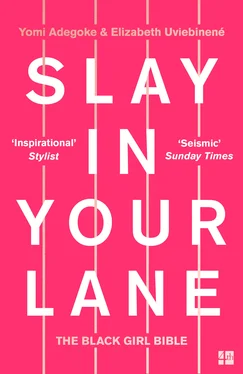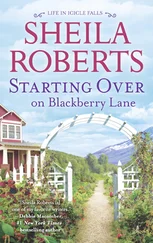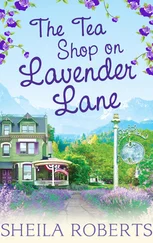University was one of the greatest times of my life, but it wasn’t without its challenges. If you are on your way to uni or are considering going there in the future, you will no doubt have already been given lots of advice from websites, teachers and those who have already graduated: don’t leave your dissertation to the last minute; label your food in the shared fridge; rinse the Freshers’ Fair for as many free highlighters and notebooks as you can; always accept the Domino’s vouchers – you will need them. But often one very important topic is left off this generic list of well-meaning wisdom, and that’s how to deal with racism. And when I say racism, I don’t just mean blackface Bob Marley costumes at every conceivable event (there will always be one). As I’ll come back to, statistics show that, like the police force, the health service and the workplace, university is a space where racism is embedded – beginning with the application process and continuing right up to graduation. From often alienating curricula to downright ignorance from flatmates, uni can be intimidating for any student, but this is especially so when you’re black and female.
.....................................................
‘We’re not in Kansas anymore, Toto.’
.....................................................
For many black students, university will be their first time living away from home and also often their first time living in a predominantly white area or environment. The beauty of university is that it often thrusts you into the midst of people who are vastly different from yourself, broadening your mind in the process. But this can also sometimes leave you feeling seriously homesick, isolated and generally disconnected.
Little recognition is given to the culture shock experienced by many students coming from predominantly ethnic areas. Maggi cubes become as rare as precious minerals, and weaves often stay on far longer than you’re used to, pretty much growing right off your head for want of a nearby hairdresser. People ask questions you may not be used to answering; for some students you’ll be the very first, real-life, 3D black person they’ve ever met and they will have endless questions about your apparently baffling existence – which has been taking place just two hours down the M40 for the past 18 years – questions which, by the way, you are under no obligation to answer.
When I went to university, my fear that I would be the only black kid on campus wasn’t quite realised, but on the other hand, Warwick wasn’t exactly Croydon in terms of diversity. It is normal for freshers to struggle initially with making friends, but by the end of week one, when one of my first conversations had been with someone who told me he believed there was ‘Me black’ and ‘Rihanna/Beyoncé black’, I had already decided I wouldn’t be spending much time at my halls or with my flatmates. Instead I found solace in the halls a stone’s throw away from me, which housed about half of the uni’s black female intake (again, this wasn’t much). But in those halls I soon found myself a best friend, a boyfriend and a community. Together we searched for hair shops and discovered the clubs that played black music (as much of a banger as The Killers’ ‘Mr Brightside’ was, we heard it more times during the entirety of our nights out than we did anything remotely ‘ethnic’). ‘Black music’ was relegated to a Thursday night and primarily consisted of Sean Paul’s discography.
We swapped eye-roll-worthy anecdotes on microaggressions and lamented the lack of available seasoning in our nearest supermarket. And the best friend I made? I could never have foreseen that eight years, several, several hours of phone calls and even more nights out later, we’d be co-writing a book together. Uni can really be the making of you, even if you don’t always realise it at the time.
Dr Nicola Rollock went to university many years before me and it’s interesting how similar her experience was:
‘I think there were quite a lot of things I took for granted growing up in South-West London, even though I went to this mainly white and very middle-class school. Going to find a black hairdresser’s or Black Caribbean food was normal. Brixton was down the road, Tooting … it was completely normal. I didn’t have to go out of my way to find these things, yet going to Liverpool in the early 90s – and remember this was before it was the European Capital of Culture – was a real challenge, and at 18 I didn’t actually know that I needed those things in my life. I didn’t know they were important to me because I’d really taken them for granted. Even going out was a challenge, in terms of the kind of music I was listening to as a young woman. I had to go out of my way to find venues that would play music I was interested in; there was something called “Wild Life” that happened once a month that played R&B, soul and hip hop – this was once a month at university. So we – me and the few other black girls – ended up befriending black local Liverpudlians and going to “blues”, as they were called, or “shebeens”, 13outside of the university context, because we were really hungry for and looking for places where our culture and identity was recognised and we could just relax.
‘I remember with “Wild Life” we went to enjoy the music, and it felt like some of our counterparts went to drink, and again this was something I wasn’t used to; I didn’t grow up in a house where our parents would say “Go and have a drink,” or, “Here’s some money, go down to the pub.” I didn’t step into a pub until university, and even then I remember saying, “But I’m not thirsty!” Which completely misses the point of going to the pub, as it’s not only about that, it’s about connecting and sitting down and a place to meet, but for me it was just outside of my cultural frame of reference. So I found, in terms of food, music, hair – because my hair was relaxed and straightened at the time – finding a space in which I could be myself and be with others was a deep, deep challenge, so I felt very, very isolated. Then there were the things that many students experience, such as not having any money. I ended up needing to work as well as study … I just found it incredibly difficult and isolating. I would get the train back from Lime Street to London and I would come via Brixton (this was before Brixton was gentrified) and I would walk up the steps at Brixton station and literally, quite literally, exhale, because foods were there, black hair shops were there, my culture and identity was all around me. It was as if I had arrived home.’
.....................................................
‘Ah, the racially insensitive party. A mainstay of primarily white institutions since time immemorial.’
Dear White People
.....................................................
For me and my group at uni, our friendship was a wonderful buffer between us and a lot of things that didn’t have nearly the effect on us as they might have done, had we not had each other. For instance, there was the time the cheerleading club decided to give its annual ‘slave auction’ (which in itself was a problem) a Django Unchained theme. Or when a Snapchat picture was uploaded to one of our university community pages on Facebook featuring a black man wrapped in a net with the caption, ‘I caught me a nigger!’ And let’s not even start on the Stockholm syndrome of other black students who would tell the predominantly black women who kicked up a fuss to ‘chill out’.
And the black face. My gosh, the black face.
Microaggressions (defined as a statement, action, or incident regarded as an instance of indirect, subtle or unintentional discrimination against members of a marginalised group) can range from a flatmate throwing out your plantain because they think they’re rotten bananas, all the way to outright flagrant slurs. And in recent years, the racism that was once only whispered about among students has become a talking point on and off campus. Universities put to bed the dangerous myth that racism is the preserve of the ‘uneducated’ and ‘ignorant’ – in fact, it is often those in power who are the ones perpetuating it. Universities are, at times, so racist that they make headlines. The country gasped at the story of a black first-year student at my old university who had found the words ‘monkey’ and ‘nigga’ written on a bunch of bananas she had stored in her shared kitchen. Many black students tutted and sighed, not in surprise but in recognition.
Читать дальше












